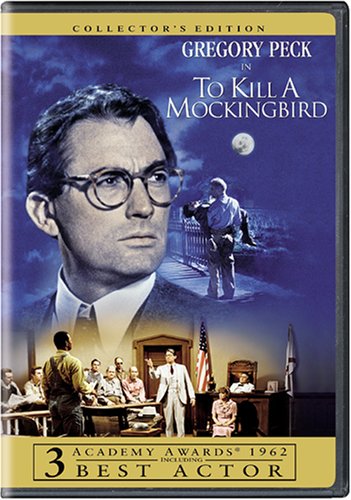All Nonfiction
- Bullying
- Books
- Academic
- Author Interviews
- Celebrity interviews
- College Articles
- College Essays
- Educator of the Year
- Heroes
- Interviews
- Memoir
- Personal Experience
- Sports
- Travel & Culture
All Opinions
- Bullying
- Current Events / Politics
- Discrimination
- Drugs / Alcohol / Smoking
- Entertainment / Celebrities
- Environment
- Love / Relationships
- Movies / Music / TV
- Pop Culture / Trends
- School / College
- Social Issues / Civics
- Spirituality / Religion
- Sports / Hobbies
All Hot Topics
- Bullying
- Community Service
- Environment
- Health
- Letters to the Editor
- Pride & Prejudice
- What Matters
- Back
Summer Guide
- Program Links
- Program Reviews
- Back
College Guide
- College Links
- College Reviews
- College Essays
- College Articles
- Back
To Kill A Mockingbird
The movie "To Kill a Mockingbird" (directed by Robert Mulligan and produced by Alan J. Pakula), based off the novel by Harper Lee, reveals the unjustness of Southern prejudice through unbiased eyes.
A major theme of the movie is prejudice is unjust and immoral. During the trial of Tom Robinson (Brock Peters), Robinson is wrongly accused of raping a white woman. It is clear, from the evidence, that the man is innocent, but the jury persecutes him still. The courtroom is a perfect microcosm of Southern society in the 1930s. It displays the power and truth disparity between white and black people. White men have more power, so they found Robinson guilty of the crime. The segregation between blacks and whites in the courtroom also displays the power disparity. This theme is able to be proven without bias by basing the movie from an innocent child's point of view. Jem and Scout Finch (played by Philip Alford and Mary Badham) have no prejudice against people. For example, during the trial of Tom Robinson, the children sat with the black people upstairs to watch. They didn't care whether they were black or white. The child's point of view makes the entire film possible for its time.
The actors in this movie were amazingly comfortable in front of the camera. It is easy for the viewer to forget they are actors. When the children are looking at Boo Radley's (Robert Duvall) house for the first time, they act exactly how children would act, scared and a little excited. Although the acting was phenomenal, the suspense of the scene detracted from my enjoyment of the movie because of the dialogue. In some parts of the movie, scenes can be understandable without dialogue. When Addicus Finch (Gregory Peck) is sitting on the porch alone, there is necessary silence. His posture and expression suggests he is lonely and misses his wife. Altogether, this movie was enjoyable because of the impressive acting.
In movies we, as the viewers, expect certain characteristics. In a good drama, we expect an outcast or character with a dark side. After taking up the case of Tom Robinson, Addicus Finch is an outcast in Southern white society. He is disowned by Bob Ewell (James Anderson) and treated like dirt. I found it ironic, yet very entertaining, that Addicus became an outcast in his society for doing the right thing. Because of this element, "To Kill a Mockingbird" is a movie worth seeing more than once.
There are strong implications about Southern society in "To Kill a Mockingbird". It is saying that Southern society in the 1930s was unjust and wrong. I felt sickened by the way the white people reacted to Tom Robinson's case, even though I knew they were acting. The story line is a little exaggerated about the prejudice towards black men like Robinson, but is necessary for the audience to understand the reality of the situation. This film live far beyond its own time. There will always be prejudice in society and people should watch "To Kill a Mockingbird" to remember what the other side feels about discrimination. It is a nauseating truth, but it is a reality and "To Kill a Mockingbird" will always remind us of that.
Similar Articles
JOIN THE DISCUSSION
This article has 0 comments.

